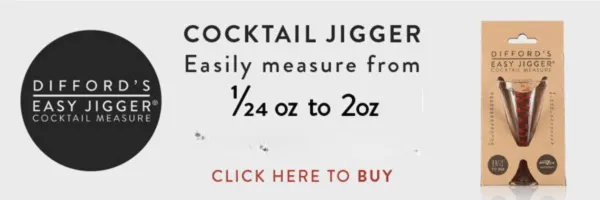Are you a Discerning Drinker?
Join thousands of like-minded professionals and cocktail enthusiasts, receive our weekly newsletters and see pages produced by our community for fellow Discerning Drinkers.


Wilson Pires
"Like a lot of bartenders, I started bartending as a way to go out and not spend money," says Wilson Pires, who's representing Spain and Portugal at the Patrón Perfectionists global final next month. "You have fun and you make money and you drink for free. Working behind the bar, you're a star, because there's many people in a bar and there are only a few bartenders."
Pires began his adult life playing in bands, and initially saw bartending as a side gig, a way to make money and support his career as a musician. Then his band split up, he went for a job with a cruise line company so that he could see the world and make money too, and he ended up in love with the bar. "I was having so much fun doing cocktails and people really appreciated what we were making for them," he recalls. "I started to study and learn more and more, then things evolved."
Besides his time on the ocean, Pires has worked on three different continents. In Tokyo, he joined the Michelin three-star chef Heinz Beck's empire at his eponymous restaurant (now closed); in Amsterdam, he worked at the Waldorf Astoria then Tales & Spirits. Travelling to South America, he took a role at Guilhotina, São Paulo, as well as working at Florería Atlántico, Buenos Aires, the florist-cum-drinkery that placed fifth on the 2021 World's 50 Best list.
In the wake of Covid, however, he's back where it all began, in his hometown of Faro in Portugal's sun-soaked Algarve. In between shifts at the Associação Recreativa e Cultural de Musicos, an arts and music centre with a cool and eclectic clientele, he's building up his Verso range of canned cocktails and mocktails.
"What we do is we can Portuguese culture and tradition," Pires says. "We do a sangria; we do a Poncha da Madeira, which is a tropical, traditional cocktail from Madeira, one of our islands; we do a raspberry and lemongrass spritz. Here in Faro, we produce some of the best raspberries in the world."
In Search of Perfection
For Pires, perfectionism is a paradox, a case of striving for something that's definitionally unachievable. "Perfectionism is something that you want to achieve, but you know that, even if everything goes well, you'll never achieve it," he says. "If you believe that you are a perfectionist and you already know everything, then something very wrong is happening to you."
He would never describe himself as a perfectionist. "I think I'm just a curious guy that's always trying to see how I can improve something, how we can make things better and more efficient," he says. "It's also a word that, especially in job interviews, is overused: 'One of my bad characteristics is that I'm a perfectionist...'"
For Pires, perfectionism springs from following your passion. "You have the will to do it because you love what you do," he says. "When you become a mother or a father, you don't want to be the best mother in the world because you want to achieve perfection. You want to do it because you feel love for those kids, you want to provide the best for this person."
Suitably for a curious guy, the chance to travel and learn from experts is a major part of Pires' motivation for joining the Perfectionists competition. "I don't compete to get a medal and say, 'Oh, Wilson, you are the best!'" he says. "No, I want the prize. I want to travel. I want to have the chance to go to the Hacienda Patrón and get in touch with the guys that do the distillation and learn from them and drink their knowledge. That's my motivation."
In fact, he has only one expectation of his visit to Mexico. "The only thing I expect is to get a new tattoo," he says. "Usually when I travel and I do a nice trip I get a tattoo from the place, so I expect to collect one in Mexico as well."

Wilson Pires' Winning Cocktail: Paloma Negra
Pires' winning cocktail takes its name from Paloma Negra, a song by Mexican singer Chavela Vargas that may have been inspired by the artist Frida Kahlo. "Frida Kahlo has a beautiful story but also a story full of pain," Pires says. "Psychological pain from her loves and the relationship that she had with Diego Rivera, and physical pain from a big bus accident that broke her spinal column."
While he's very much a bartender not an artist, Pires finds inspiration in Kahlo's story. "I really like the way she faced life, the way she fought for women's rights. She was beyond her time," he says. "She was fighting: 'I don't need to have long hair; I don't need to wear dresses.' 'If a guy doesn't do it, does a woman need to do it?' This is the kind of mentality that I love."
To add an artistic sensibility to his drink, Pires created his own edible paint colours so that guests can paint on the glass or create coloured swirls within the drink. He made a red using leftovers from his grapefruit cordial, a purple based on hibiscus and a green using leftovers from the chilli liqueur and some bell pepper.
"I tell the story and I always tell them this is your drink, this is your palette, you are the artist: you can either drink from the side and taste the colours in combination or you can add to the drink itself," he says. "As you change the colour you also change the flavour."
45ml Patrón Silver tequila
10ml St-Germain elderflower liqueur
30ml Grapefruit cordial
5ml Chilli liqueur
Method: Mix all the ingredients together with ice using the "throwing" technique to ensure they are fully aerated then strain into an ice-filled rocks glass. Serve with a paintbrush and edible colours so the guest can paint the glass and/or the liquid.

Patron Silver tequila
Patrón Silver is a blend of two very differently produced triple distilled tequilas - one made using a traditional tahona and fermented with agave fibres,

Patron Reposado Tequila
Patrón Reposado comprises two very different 100% agave triple distilled tequilas - one made using a traditional tahona and fermented with agave fibres,

Patron Anejo tequila
Patrón Añejo is a blend of two very differently produced triple distilled 100% agave tequilas - one made using a traditional Tahona and fermented with





